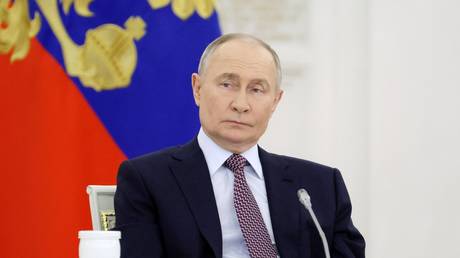An S-400 interceptor missile launc at the Ashuluk military base in Southern Russia during military drills in September 2020. This is one of the systems that makes up Russia’s complex air-defense network.
Photo by DIMITAR DILKOFF/AFP via Getty Images
Ukraine has used long-range drones to strike multiple ammunition depots inside Russia this month.These attacks have caused extensive damage and resulted in the loss of valuable weaponry.Russia has been unable to stop these attacks despite operating an extensive air-defense network.
Russia maintains an extensive air-defense network, but it hasn’t been able to stop Ukraine from using its long-range drones to strike deep, according to a new Western intelligence update.
Ukraine has used its drones to carry out a string of attacks on key Russian ammunition depots this month, causing widespread damage across the sites and destroying tons of weaponry that’s crucial to supporting Moscow’s war machine.
The attacks have underscored the success of Ukraine’s long-range drone programs while also raising questions about Russia’s ability to effectively stop these systems.
Britain’s defense ministry said the fact that Kyiv can carry out major attacks in quick succession underscores how Russia struggles to defeat the Ukrainian drones used in deep-strike operations even though Moscow operates an extensive air-defense network.
This network consists of surface-to-air missile systems, electronic warfare capabilities, anti-aircraft guns, and fighter jets.
Ukraine said its long-range drones managed to bypass Russia’s air defenses and strike an ammunition depot in the Volgograd region over the weekend, marking Kyiv’s latest attack.
The aftermath of a Ukrainian attack on a Russian ammunition depot earlier this month. Ukraine has targeted multiple arsenals this month.
Satellite image ©2024 Maxar Technologies.
In a Sunday intelligence update, Britain’s defense ministry said it is “highly likely” that the Ukrainian attacks “will force further dispersals in the Russian logistics chain for fear of additional strikes, increasing the burden on an already stretched system.”
Conflict analysts at the Institute for the Study of War think tank offered a similar assessment after a Ukrainian attack in mid-September on a Russian ammunition depot in the Tver region.
The analysts said repeated strikes on Russian ammunition depots that cause extensive damage may force Moscow’s military command to disperse its support and logistics systems to make them less vulnerable to Ukrainian attacks.
Russia’s inability to repel long-range Ukrainian attacks is nothing new, though. Moscow has struggled to do so throughout the war.
For months, Ukraine has managed to successfully target key military and energy facilities inside Russia. Kyiv has relied heavily on locally produced drones to wage this campaign because it is restricted from using Western-provided missiles to strike Russian territory.
Ukrainian officials have long lobbied to get the West to drop these restrictions, arguing that it would better allow them to degrade Russia’s military capabilities.





+ There are no comments
Add yours